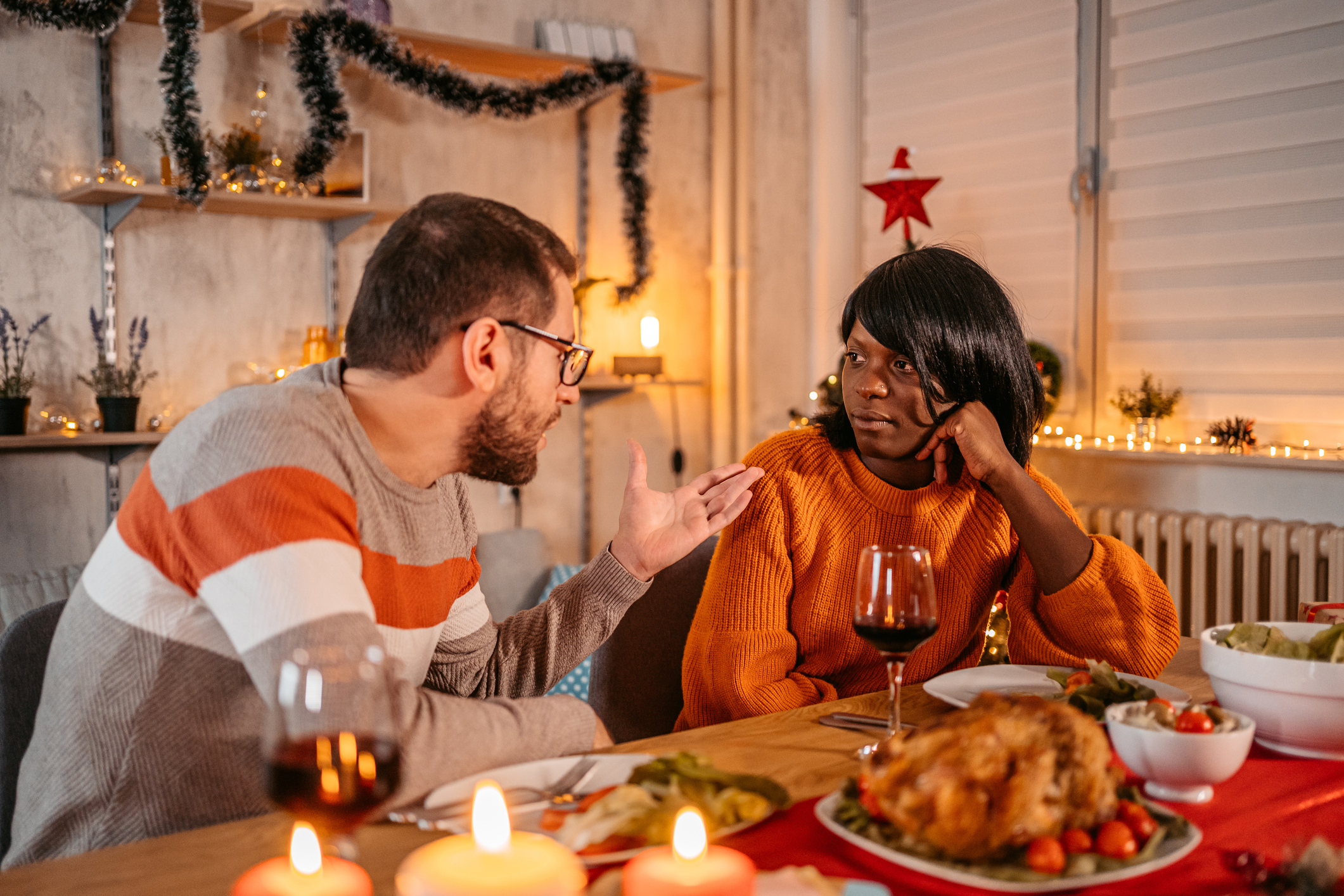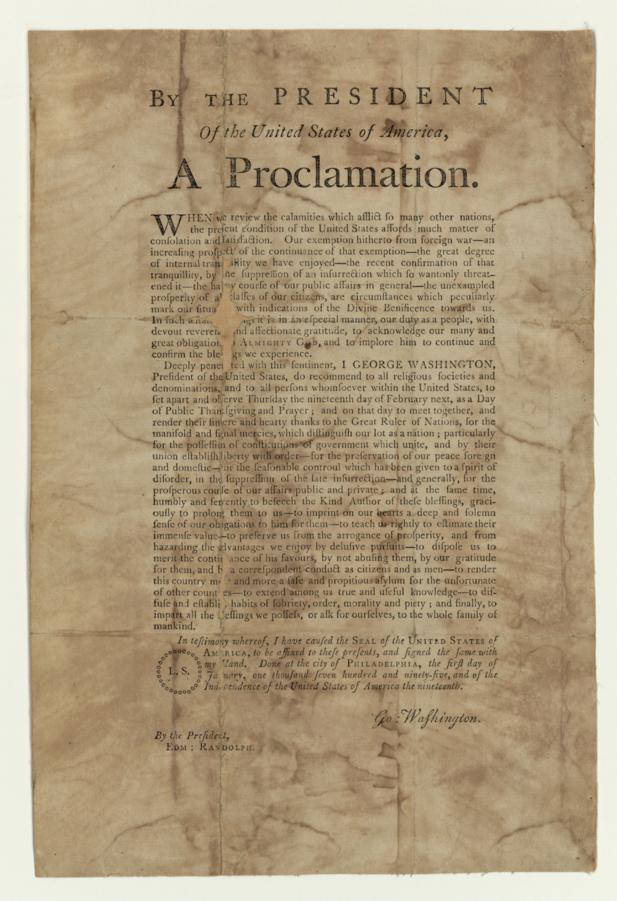Never forget the blessings the founders bequeathed.
The Thanksgiving Table Throwdown

This year’s title match pits optimist against pessimist.
Sometime around October 11 of this year, which was Canada’s Thanksgiving Day, someone in Canada posted a tweet that foretold what we Americans are in store for tomorrow.
An apparently unvaccinated woman tweeted that her mother decided to cancel the family’s Thanksgiving dinner in light of the current pandemic. Fine, she thought, better luck next year. But then her mother asked her daughter to return a gravy boat to her, hopefully before October 10.
Yes, her mother was having Thanksgiving, only she didn’t invite her unvaccinated daughter and the lie was transparent.
How many American families are being torn apart, not by a virus, but by the calculatingly divisive nature of health policy propaganda, draconian administrative policies, and mass levels of conditioning?
There’s no way to know, of course. Still, the propaganda, the policies, and the conditioning wouldn’t work if there wasn’t a more basic human nature to exploit which is the natural divide between optimists and pessimists.
Optimists v. Pessimists
Under normal circumstances the differences are harmless and often meaningless. On a typical year, dinner table conversation may feature tales of young Katie’s rock-climbing adventures, while grandma cringes in fear at the very thought of taking such a risk.
But this Thanksgiving’s main course may center on a risk of a different sort. The decision to get together will be for some a risk not worth taking, but for others, it’s no big deal. It goes on from there. Who’s vaccinated and who’s not? Should they be invited or not? Who’s had the virus and who has not? Should it matter?
The battle lines are drawn, only it’s not between the vaccinated and the unvaccinated, though there will be some predictable overlap, but rather between the pessimists and the optimists.
Optimists Include both the Vaccinated and the Unvaccinated
The optimist camp may include both the vaccinated and the unvaccinated. They may have had Covid or maybe not, but they aren’t going to allow certain challenges to stand between them and the life they want to live, and that includes enjoying priceless family time at Thanksgiving. They aren’t going to allow politically-driven policies and media messaging to get between them and family members, at least if they can help it.
On the other side of the table are the pessimists. It’s likely that majority in this camp are vaccinated, but that fact hasn’t altered their inherent pessimism. They don’t trust the vaccine enough to keep them safe, and they won’t change their ways if you’re vaccinated. But they will insist that anyone around be vaccinated. You may find them wearing masks indoors, and even when outside at the family’s annual Turkey Bowl game.
The pessimists see only risk. Anyone they meet is a threat to their safety. Fresh air is not fresh air, but a conduit for the spread of a virus. They’ve decided that because the virus has killed some people it will kill them. So, they make decisions accordingly.
Your mom might decide that it’s just not worth the hassle to try to host Thanksgiving this year because of your pessimist sister or brother-in-law. Your brother and his family may have decided to boycott this year’s Thanksgiving dinner because “not everyone is vaccinated,” and the risks are simply too great.
For far too many, attendance at Thanksgiving dinner will be withheld as a form of punishment to family members who have not complied to the letter with some Washington bureaucrat’s latest dictate or narrative.
The optimists, for their part, will be oblivious to the pessimists, because such is their nature. They will eat rich food, drink good drink, and watch mediocre football without allowing their pessimist family members to ruin a good time, or at least they will try.
How different are things this year?
Pessimists and optimists have been peacefully coexisting for ages, so what’s really new about all of this?
That will become evident when cousin Justin tells cousin Zach that if he really cared about other people, he’d have gotten vaccinated, and that aunt Jackie is effectively hosting a super spreader event. Cue the Thanksgiving fireworks.
There’s something oddly familiar and charmingly American about the annual Thanksgiving dinner table fight, one that has traditionally pitted the optimists against the pessimists.
But the difference this year is that there may be something worth fighting about. Regardless of the words used in the heat of the moment, this debate will be over our rights to freedom from an all-controlling government and other hidden powers not so easily held accountable. That will be the optimist’s perspective.
The pessimists will see it as a fight for freedom from all risk and all threat even if it means surrendering their God-given rights to self-determination.
In November of 1789, President George Washington declared a day of Thanksgiving for this infant nation, thanking God for among other things, “the civil and religious liberty with which we are blessed.”
The optimists seem to get that. The pessimists never will.
The American Mind presents a range of perspectives. Views are writers’ own and do not necessarily represent those of The Claremont Institute.
The American Mind is a publication of the Claremont Institute, a non-profit 501(c)(3) organization, dedicated to restoring the principles of the American Founding to their rightful, preeminent authority in our national life. Interested in supporting our work? Gifts to the Claremont Institute are tax-deductible.
The Genuinely American Debate over Federalism and Thanksgiving.
We should be thankful for the sheer wonder of being.



